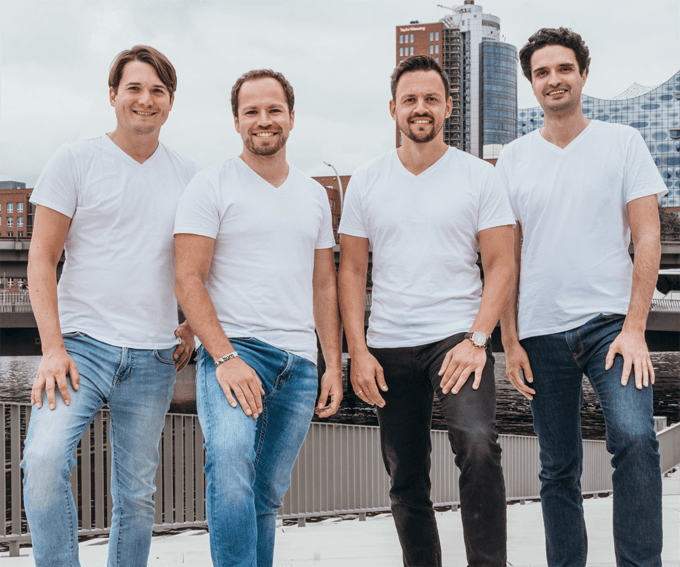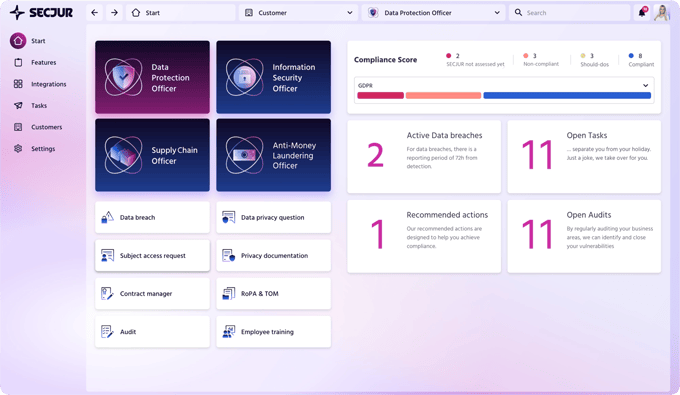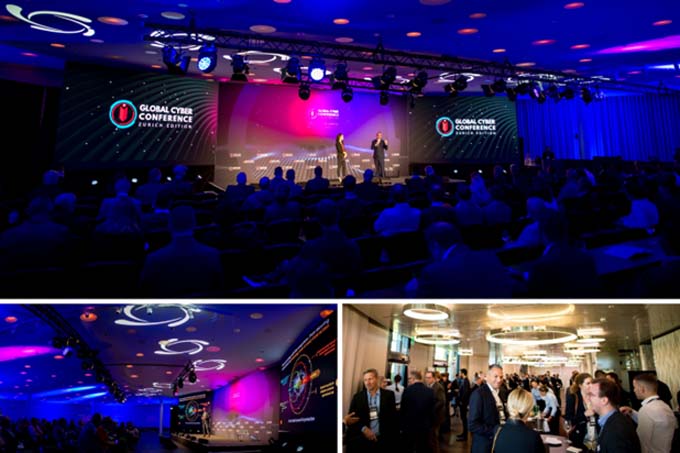Havas Brand Predictor 2023: Sustainable brands are more likeable
Swiss traditional brands enjoy great prestige. This is shown by the current Havas Brand Predictor. Swiss consumers also tend to rate sustainable (consumer) brands and parties as more likeable. This year's survey was supplemented by additional items of likeability and sustainability.

The Brand Predictor from Havas Switzerland examines brand preference for the most relevant brands in the Swiss market. Since 2012, the key indicators of dynamism and trust have been the central measures of the Brand Predictor. Both are regarded as indispensable indicators of brand preference and thus also of consumers' purchase intentions. While a high dynamic value from the point of view of the respondents indicates increased popularity and thus high brand attractiveness, a high value in trust shows that the respective brands are perceived as reliable.
The most dynamic brands 2023
Digital brands and brands in the area of sustainability once again dominate the top 20 ranking in dynamics. The differentiated analysis in the area of sustainability shows that classic sustainability labels on product origin such as "Miini Region" and labels on production and agricultural standards such as "BioSuisse" and "Migros Bio" have clearly lost momentum compared to the previous year. Instead, the sustainability trend is shifting further and further into the area of plant-based nutrition.
"At a time when consumers are becoming more demanding and informed, it is important for brands to act quickly. Planted, Beyond Meat and V-Love are particularly successful in this respect, as they offer not only sustainability but also convenience and make it easier for consumers to implement their eating behavior according to their personal values," explains Rachel Montalbo, study manager at Havas.
Twint once again occupies the top position among digital brands this year and remains unchallenged despite a slight decline in momentum. However, the momentum ranking also highlights the fast pace of digital brands: social media app BeReal is the strongest newcomer brand in the momentum ranking, positioning itself ahead of TikTok and Netflix, the high-flyers of recent years. The winners in the Dynamik ranking also include the video streaming platform Twitch, which shows a continuously positive development in the Dynamik ranking. The mobile bank neon can also reclaim a place in the top 20.

Momentum Factor: The trendiest brands
In addition to the core indicators momentum and trust, further key figures are reported: The Momentum Factor provides information on which brands are showing a strong increase in perceived popularity and are therefore trending strongly.
A look at the Momentum Factor confirms the observed trend toward the most dynamic brands. While classic organic and regional labels are losing relevance, vegan food manufacturers and digital lifestyle brands in particular are gaining ground. Twint can also defend its leading position in the category of the trendiest brands.
"Twint is a fine example of a brand responding to current consumer needs. The constant development of the service offering strikes a chord with the times and satisfies needs for efficiency and convenience. This creates an overall positive customer experience," reasons Rachel Montalbo.
The results from the Havas Brand Predictor show how societal and global megatrends can impact brand perceptions and preferences, as well as consumer behavior: The relevance of those brands that serve the needs of an efficient, authentic and sustainable lifestyle is increasing. For example, the strongest newcomers in the Momentum Factor include BeReal, CoffeeB, Polestar and Alpro.

Trust: Various factors play a role
Trust plays a decisive role in determining brand preference, with the time factor being of great importance. Nevertheless, a long existence of a brand alone does not automatically guarantee a high level of trust. Other factors, such as the industry to which a brand belongs, play an important role. Experience shows, for example, that health insurance companies score lower than brands from consumer electronics or retail brands.
Central, however, is the performance delivered in terms of core competence. Similar to previous waves of the survey, traditional Swiss brands, mainly from the food industry, score the highest trust ratings - including Le Gruyère, Cailler and Rivella. Migros also cements its leading position. The fact that the Group generally enjoys a great deal of trust is demonstrated, among other things, by the fact that "From the region, for the region" and "M-Budget" are two other brands from the Migros universe among the 20 most trusted brands in Switzerland.

New key figures: Likeability and sustainability
Two important brand evaluation indicators have now been added to the Brand Predictor. The value for perceived likeability provides information on how much respondents like a brand and also takes into account subconsciously perceived brand experiences. The likability ranking shows similarities to the trust ranking and includes many traditional brands such as Le Gruyère and Wernli. Surprisingly, the sustainability label "From the region, for the region" makes it to the top of the most likeable brands. Switzerland, Wikipedia and SBB are also rated as very likeable.
The sustainability metric measures how sustainable a brand is perceived by respondents. Apart from the sustainability labels, which operate in the area of sustainability due to their core business, the following brands, among others, are perceived as particularly sustainable: The search engine Ecosia, Beyond Meat, Migros and Planted. At the top of this ranking is SBB, which is perceived as a driver of sustainable mobility. The car-sharing provider Mobility is also rated very highly.
The correlation between likability and sustainability is striking. "Respondents tend to rate sustainable brands more likable as well. Although no causality can be proven, the correlation is remarkable and reflects the current preferences of consumers," explains Rachel Montalbo. "This could be related to the meaningfulness of the brand. A brand generally has a harder time being liked if, from the respondents' point of view, it is not meaningful, in this case not sustainable. This is also confirmed time and again by the 'Meaningful Brands' study conducted annually by Havas. Almost 3 out of 4 people are of the opinion that brands already have to take responsibility for society and the planet. Brands that fail to live up to these expectations quickly lose relevance."

Sustainably oriented parties are dynamic
On the occasion of the 2023 elections, Brand Predictor also took a closer look at the perception of political parties. The two green parties, GLP and Grüne, score highest in terms of momentum, which is not surprising given the ongoing theme of sustainability. It remains to be seen whether they can maintain this momentum until the elections in order to win further seats in parliament.
The SP's very low rated momentum is striking. It is assumed that the rated momentum has suffered in recent months in connection with the Corona Leak entanglements of SP Federal Councilor Alain Berset.
Perceived trustworthiness will be particularly important for the parties in defending existing seats. The center, Greens and SP are seen as the most reliable parties, while FDP and SVP enjoy the lowest level of trust among respondents.
Gen Z likes sustainable and digital brands
The Brand Predictor also examines the assessment of the various segments within the study. It is particularly interesting to look at the 15-26 year olds. Members of Gen Z perceive either sustainable or digital brands as dynamic. The trends at the overall level are reinforced here, with the young in particular rating sustainability labels higher than the overall population. In addition, however, there is also a growing preference for digital brands. Thus, in addition to the aforementioned brands Twint, BeReal, Spotify, TikTok and Twitch, Disney+, ApplePay, digitec and Tesla can also be found in the top 20 ranking of the Young Generation.
The high affinity of the under-26s for digital brands becomes even clearer when looking at the Momentum Factor ranking. With Tiktok, BeReal, Twint (ranks 1-3) and Tesla (rank 5), four digitally associated brands are among the trendiest brands. V-Label ranks 4th as the strongest sustainability brand, with On performing better compared to the overall rating.
Among the under-26s, traditional Swiss brands such as Migros, SRF and food brands are particularly trusted. Migros positions itself in first place with top marks; but SRF's high ranking is also remarkable, as media brands are generally trusted less. Twint and Spotify represent the digital brands in the trust ranking, while trust in Switzerland as a country is high.
































